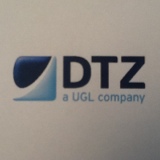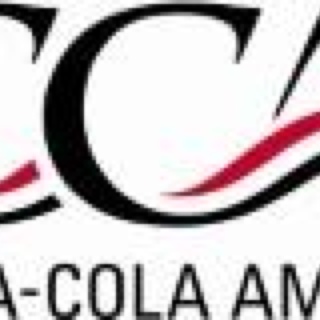Information
-
Document No.
-
Audit Title
-
Client / Site
-
Conducted on
-
Prepared by
-
Location
-
Personnel
1. Walkways, floors, and wall openings
-
1a. Are aisle and passages kept clear?
-
1b. Are holes in floors and walkways covered and made safe for use?
-
1c. Are materials stored so they do not project into the walkway?
-
1d. Are walking surfaces kept clean and dry?
-
1e. Are guardrails used where walkways are 4 feet above flooring?
-
1f. Are floor openings guarded on all sides?
-
1g. Are grates and covers of sufficient strength for foot and motor traffic?
-
1h. Do stairs of 4 or more risers have handrails?
-
1i. Do steps or stairs have a slip resistant surface or edge?
-
1j. Are handrails 30-34 inches above the leading edge of the surface?
-
1k. Are work areas clean and orderly?
-
1l. Are areas properly illuminated?
-
Comments
2. PPE
-
2a. Are approved safety glasses/goggles used in work areas as required?
-
2b. Are signs posted warning of potential for eye injury where flying particles can be present?
-
2c. Are gloves, aprons, shields, or other means for protection against cuts, corrosives and chemicals?
-
2d. Are hard hats provided and used when needed?
-
2e. Are required safety shoes used while at work?
-
2f. Is electrical protection available when working around or with electricity?
-
2g. Is hearing protection provided for high noise areas?
-
2h. Is damaged PPE replaced in a timely manner?
-
2i. Is PPE stored and kept clean when not in use?
-
2j. Does the supervisor enforce the use of PPE?
-
2k. Are first aid and infection control kits readily available?
-
Comments
3. Fire protection
-
3a. Are fire alarms inspected annually?
-
3b. Are fire doors and shutters operational and in good condition?
-
3c. Are sprinkler systems checked and records kept?
-
3d. Are portable fire extinguishers checked and tagged at least annually?
-
3e. Are employees instructed in the use of fire extinguishers?
-
3f. Are fire extinguishers needing service removed from the work area and stored for recharging?
-
3g. Are emergency exits clear of obstructions?
-
3h. Are stairwells clear and free of obstructions?
-
3i. Are fire evacuations and emergency procedures current, posted and are employees aware of the procedures to follow?
-
3j. Are voice speaker systems and phones inspected monthly?
-
Comments
4. Elevated surfaces
-
4a. Are platform areas guarded with rails and a 4 inch toe board for protection?
-
4b. Is a means of access and egress provided to elevated surfaces?
-
4c. Is material on elevated surfaces stored in a safe manner?
-
Comments
5. Exits and means of egress
-
5a. Are all exits marked with a sign and illuminated?
-
5b. Are the i reactions to exits marked with proper signage?
-
5c. Are letters on exit signs at least 6 inches high and 3/4 inch wide?
-
5c. Are all exit doors unlocked, accessible and free of obstruction while the building is occupied?
-
Comments
6. Ladders
-
6a. Are ladders maintained in good condition?
-
6b. Are non-slip safety feet provided on all extension ladders?
-
6c. Are employees prohibited from using ladders that are broken?
-
6d. Do portable rung ladders extend 3 feet above the landing surface?
-
6e. Are all rungs and supports tight, without bends, twists or broken pieces?
-
Comments
7. Tools and Power Equipment
-
7a. Are all tools in good working condition?
-
7b. Are tool handles free from tape repair?
-
7c. Are employees prohibited from using chipped or cracked tools?
-
7d. Do power tools have proper safety guards?
-
7e. Are all belts, pulleys, chains and sprockets guarded?
-
7f. Are fans guarded?
-
7g. Is GFCIs used on temporary circuits?
-
7h. Is GFCIs used where water or moisture is present?
-
7i. Are hand grinders used with the proper guards in place?
-
7j. Is the tool rest on bench grinders adjusted to within 1/8 inch of the wheel?
-
7k. Do side guards cover nut, spindle and 75% of the wheel?
-
7l. Are bench and pedestal grinders securely mounted?
-
7m. Are goggles and face shields used and warnings sings posted?
-
7n. Are tools, equipment and materials properly stored when not in use?
-
7o. Are hammers and screwdrivers checked for damage and chipped surfaces?
-
Comments
8. Air compressors and compressed air
-
8a. Are air compressors equipped with relief valves and reassure gauges?
-
8b. Are warning signs posted for the automatic starting feature?
-
8c. Is he belt drive system guarded?
-
8c. Are compressed air receivers episodically drained of moisture and oil?
-
8d. Are maintenance records kept and up-to-date?
-
Comments
9. Welding, Cutting and Brazing
-
9a. Is care used in handling and storage or compressed gas?
-
9b. Are empty cylinders identified and stored away from full tanks?
-
9c. Are cylinder storage areas properly identified with signs?
-
9d. Are cylinders kept away from heat sources?
-
9e. Are welding electrodes removed from holders when not in use?
-
9f. Is fire protection readily available?
-
9g. Is proper PPE available and used?
-
9h. Does the area have proper ventilation?
-
9i. When welding is the area around the welding area protected with protection blankets?
-
9j. When the welding unit is not in use are the cylinders properly stored e.g. Gauges removed and the cylinder caps put on?
-
Comments
10. Lockout/Tagout
-
10a. Are all electrical enclosures properly identified?
-
10b. Are employees provided with proper LOTO equipment?
-
10c. Are employees required to keep personal control of keys?
-
10d. Are all machines capable of Lockout/Tagout have an ECP?
-
10e. Are all employees trained in Lockout/Tagout?
-
Comments
11. Permit Required Confined Spaces
-
11a. Are permit required confined spaces properly identified and marked?
-
11b. Are all employees trained in permit confined space entry procedures?
-
11c. Is the proper PPE available?
-
11d. Are all remit saves checked with gas detection meters before entry?
-
11e. Is the proper rescue equipment available for permit spaces?
-
11f. Are attendants used to assist and watch for hazards trained?
-
11g. Are rescuers trained in CPR and first aid?
-
Comments
12. Flammable and Combustible Substances
-
12a. Are proper containers with labels used for storage of flammable liquids?
-
12b. Are drums grounded during the transfer of materials?
-
12c. Are storage areas properly ventilated?
-
12d. Are No Smoking and Danger signs posted, regardless of the site smoking policy?
-
12e. Are fire extinguishers available within 75 feet of outside and 10 feet of inside storage areas?
-
12f. Are fire extinguishers charged, tagged, mounted and identified?
-
12g. Are appropriate lockers or containers used for storage?
-
12h. Are storage areas properly illuminated?
-
Comments
13. Hazard Communication
-
13a. Is an MSDS available for all chemicals used in the workplace ?
-
13b. Are MSDS accessible to all employees?
-
13c. Are proper labels used on all chemical containers?
-
13d. Is proper PPE available for employees?
-
13e. Are employees trained in the safe handling of chemicals?
-
13f. Are eyewash and drenching shower stations provided within at least 75 feet of the use of corrosive chemicals?
-
13g. Are eating and drinking prohibited in hazardous chemical use and storage areas?
-
13h. Are identified asbestos-contains materials in good condition?
-
13i. Are asbestos- containing materials identified to prevent disturbance?
-
13j. If there is Asbestos containing materials in the facility has an asbestos survey been conducted by the customer and have we requested a copy of the survey?
-
Comments
14. Occupational Noise
-
14a. Does employees use hearing protection in high noise areas?
-
14b. Are hearing protection required signs posted at entry areas with noise levels above 85 dBa or greater?
-
14c. Are employees given a choice of hearing protection?
-
14d. Have employees been trained in the proper use of hearing protection?
-
Comments
15. Electrical
-
15a. Are all electrical equipment properly grounded?
-
15b. Are all cords with exposed wiring, damaged insulation, frays. Or taped splices removed from service or repaired?
-
15c. Are all switches and circuit breakers identified as to their use?
-
15d. Are all energized arts guarded against accidental contact?
-
15e. Are all boxes, plugs, switches and fittings properly covered?
-
15f. Are extension cords prohibited from bing used as permanent wiring?
-
Comments
16. Environmental
-
16a. Is there proper containers and labels for used oil/light bulbs and other hazardous waste?
-
16b. Ae employees trained on hazardous waste?
-
16c. Are storm drains appropriately marked?
-
16d. Are personnel aware of best management practices to prevent releases of wash/ mop water, oil, fuels, and chemicals to storm drains?
-
16e. Ae employees trained to properly record releases of refrigerants?
-
16f. Are employees responsible for maintaining boilers, fire pumps, and emergency generators properly trained to comply with operating permit record keeping requirements?
-
16g. Ae solvent cleaning containers and equipment kept closed and properly maintained?
-
16h. Is solid waste properly segregated and defaced for recycling?
Is Follow-up required
-
Comments
-
Add signature














